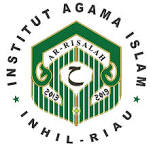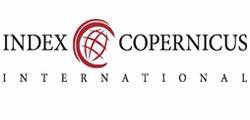Manajemen Kinerja Pengurus dalam Membentuk Karakter Santri di Pondok Pesantren Al-Ikhlas Bahrul Ulum Jombang
DOI:
https://doi.org/10.61104/jq.v3i4.2030Keywords:
Manajemen Kinerja, Pondok Pesantren, Pembangunan KarakterAbstract
Manajemen kinerja pengurus menjadi faktor kunci yang menentukan efektivitas pembinaan karakter santri di pesantren, namun aspek ini sering terabaikan dalam studi manajemen pendidikan Islam. Penelitian ini bertujuan menganalisis bagaimana praktik manajemen kinerja pengurus memengaruhi pembentukan karakter santri di Pondok Pesantren Al-Ikhlas Bahrul Ulum Tambakberas Jombang. Pendekatan kualitatif dengan metode studi kasus digunakan untuk menggali data dari pengasuh, pengurus, dan santri melalui wawancara mendalam, observasi partisipatif, dan analisis dokumen. Hasil penelitian menunjukkan bahwa perencanaan program dilakukan secara visioner dan kolaboratif, pengorganisasian bersifat hierarkis-partisipatif, pelaksanaan yang konsisten melalui keteladanan dan pengawasan harian, serta pengendalian kinerja berbasis evaluasi berkelanjutan. Pola tersebut menghasilkan internalisasi nilai disiplin, tanggung jawab, dan kemandirian yang nyata pada diri santri. Temuan ini menegaskan bahwa manajemen kinerja pengurus berpengaruh signifikan terhadap pembentukan karakter santri melalui tata kelola yang integratif antara fungsi manajerial dan nilai spiritual
Downloads
References
Agus, A. H., & Denis, M. K. (2025). Integrasi Anger Management dalam Meningkatkan Kedisiplinan Santri: Solusi terhadap Tantangan Kedisiplinan. JIIP - Jurnal Ilmiah Ilmu Pendidikan, 8(2), 2249–2258. https://doi.org/10.54371/jiip.v8i2.6923
Ahmad, N., Alam, R., Muchtar, A., & Yogyakarta, U. M. (2025). Implementation of Organizational Management in Pesantren Educational Activities : A Case Study at Pesantren Bina Insani , Yogyakarta. Al-Afkar, Journal For Islamic Studies, 8(2), 1972–1991. https://doi.org/10.31943/afkarjournal.v8i2.2217
Aijat Mau, F. (2024). Integrating Character Education in Al-Syifa Islamic Boarding Schools: A Case Study Approach. Edu Spectrum: Journal of Multidimensional Education, 1(1), 01–14. https://doi.org/10.70063/eduspectrum.v1i1.30
Allen, S., & Fry, L. W. (2023). A Framework for Leader, Spiritual, and Moral Development. Journal of Business Ethics, 184(3), 649–663. https://doi.org/10.1007/s10551-022-05116-y
Anderson, E., Cunningham, K. M. W., & Eddy-Spicer, D. H. (2023). Leading Continuous Improvement in Schools: Enacting Leadership Standards to Advance Educational Quality and Equity. In Leading Continuous Improvement in Schools: Enacting Leadership Standards to Advance Educational Quality and Equity (1st ed.). Routledge. https://doi.org/10.4324/9781003389279
Arjanto, P., Bafadal, I., Atmoko, A., & Sunandar, A. (2023). From Ethical Principles to Practice: the Growing Importance of Moral Leadership in Education. European Journal of Contemporary Education, 12(4), 1150–1165. https://doi.org/10.13187/ejced.2023.4.1150
Bader, B., Gielnik, M. M., & Bledow, R. (2023). How transformational leadership transforms followers’ affect and work engagement. European Journal of Work and Organizational Psychology, 32(3), 360–372. https://doi.org/10.1080/1359432X.2022.2161368
Berkah, D., & Zamroni, M. A. (2024). Management of Islamic Boarding School Shapes the Character of Santri Discipline. Chalim Journal of Teaching and Learning, 3(2), 147–159. https://doi.org/10.31538/cjotl.v3i2.1109
Bush, T., & Middlewood, D. (2005). Leading and managing people in education. In Leading and Managing People in Education. Sage. https://doi.org/10.4135/9781446215753
Clancy, S., & Holford, J. (2023). Bounded Agency in Policy and Action: Empowerment, Agency and Belonging. In J. Holford, P. Boyadjieva, S. Clancy, G. Hefler, & I. Studená (Eds.), Palgrave Studies in Adult Education and Lifelong Learning: Vol. Part F3438 (pp. 41–61). Springer International Publishing. https://doi.org/10.1007/978-3-031-14109-6_2
Creswell, J. W., & Poth, C. N. (2017). Qualitative Inquiry and Research Design: Choosing Among Five Approaches. SAGE Publications.
De Jong, W. A., De Kleijn, R. A. M., Lockhorst, D., Brouwer, J., Noordegraaf, M., & van Tartwijk, J. W. F. (2023). Collaborative spirit: Understanding distributed leadership practices in and around teacher teams. Teaching and Teacher Education, 123, 103977. https://doi.org/10.1016/j.tate.2022.103977
Dunaetz, D. R., Gobrail, M., Howard, J., Lord, J., & Yun, J. C. (2025). Self-leadership practices and beliefs in nonprofit organizations: differences between leaders and non-leaders. Leadership and Organization Development Journal, 46(1), 66–84. https://doi.org/10.1108/LODJ-04-2024-0284
Elsawah, S., Bakhanova, E., Hämäläinen, R. P., & Voinov, A. (2023). A Competency Framework for Participatory Modeling. Group Decision and Negotiation, 32(3), 569–601. https://doi.org/10.1007/s10726-023-09818-0
Eva, N., Robin, M., Sendjaya, S., van Dierendonck, D., & Liden, R. C. (2019). Servant Leadership: A systematic review and call for future research. Leadership Quarterly, 30(1), 111–132. https://doi.org/10.1016/j.leaqua.2018.07.004
Fandu Anugrah, Wasliman, I., Sauri, R. S., & Rostini, D. (2025). Building a Characterized Generation: Project-Based Management of the Pancasila Student Profile in Elementary Schools. Journal of Integrated Elementary Education, 5(1), 203–219. https://doi.org/10.21580/jieed.v5i1.25160
Halimah, S., Yusuf, A., & Safiudin, K. (2024). Pesantren Education Management: The Transformation of Religious Learning Culture in the Age of Disruption. Nidhomul Haq : Jurnal Manajemen Pendidikan Islam, 9(3), 648–666. https://doi.org/10.31538/ndhq.v9i3.16
Hardie, B., & Rose, C. (2025). What next for tests of the situational model of Situational Action Theory? Recommendations from a systematic review. European Journal of Criminology, 22(3), 303–345. https://doi.org/10.1177/14773708241306945
Iqbal, M. Y. (2024). Efektivitas Manajemen Kinerja Pengurus dalam Mendisiplinkan Santri di Pondok Pesantren Mambaul Ulum, Wonosari, Bondowoso. MUDIR (Jurnal Manajemen Pendidikan), 6(2), 1–6. https://doi.org/10.55352/mudir.v6i2.1135
Jamaluddin, F., Razak, A. Z. A., & Rahim, S. S. A. (2025). the Role of Self-Leadership Behavior-Focused Strategies in Enhancing Academic Performance of Students At Higher Education. Malaysian Online Journal of Educational Management, 13(2), 28–49. https://doi.org/10.22452/mojem.vol13no2.2
Karyono, Ayi Ahadiat, & Habibullah Jimad. (2023). The Influence of Transformational Leadership on Employee Performance with Work Motivation as a Mediation Variable. The International Journal of Business & Management. https://doi.org/10.24940/theijbm/2023/v11/i3/bm2303-020
Kemal, I., Arlita, F., & Aktar, S. (2023). Participatory Leadership of The Principal in Improving Teacher Competence. Journal for Lesson and Learning Studies, 6(2), 228–237. https://doi.org/10.23887/jlls.v6i2.60188
Kharkheli, M., & Gavardashvili, D. (2025). Variety of Organizational Structures. Journal of Economics, Finance And Management Studies, 08(05). https://doi.org/10.47191/jefms/v8-i5-59
Levatino, A., Verger, A., Camphuijsen, M., Termes, A., & Parcerisa, L. (2024). School Governance Through Performance-Based Accountability: A Comparative Analysis of Its Side Effects Across Different Regulatory Regimes. Review of Research in Education, 48(1), 248–286. https://doi.org/10.3102/0091732X241270672
Mahmood, W., Ismail, S. N., & Mdzalli, M. M. (2022). Leadership In Quality Management (TQM) Based On Principles Of Common And Islamic Perspective On The Concept Model Of Continuing Development. Harf-o-Sukhan, 6(1), 208–217. https://harf-o-sukhan.com/index.php/Harf-o-sukhan/article/view/314
Majiyd, H. S., & Yazidu, S. M. (2023). Contextualizing Fayols 14 principles in managing school systems in Tanzania. International Journal of Educational Administration and Policy Studies, 15(1), 64–70. https://doi.org/10.5897/ijeaps2023.0751
Manumanoso Prasetyo, M. A., & Rahmatullah, R. (2024). Pesantren Effectiveness: the Role of Organizational Culture in Enhancing Performance in Pesantren Institutions. Evaluasi: Jurnal Manajemen Pendidikan Islam, 8(1), 47–59. https://doi.org/10.32478/mz2ssy18
Mardiana, M., Ananda, R., & Rifa’i, M. (2025). Curriculum Management in Madrasah Aliyah Islamic Boarding Schools to Enhance Character Education. Journal of General Education and Humanities, 4(3), 1133–1146. https://doi.org/10.58421/gehu.v4i3.639
Miles, Matthew B., A.M. Huberman, dan J. S. (2014). Qualitative Data Analysis (A Methods Sourcebook). In Zeitschrift fur Personalforschung (Vol. 28, Issue 4). SAGE Publications Ltd.
Moen, R. (2009). Foundation and History of the PDSA Cycle. Associates in Process Improvement-Detroit (USA); W. Edwards Deming Institute. https://www.deming.org/sites/default/files/pdf/2015/PDSA_History_Ron_Moen.pdf
Mudjia, R. (2018). Paradigma Interpretif. In Jurnal Penelitian Sejarah Dan Budaya (Vol. 4, Issue 1). repository.uin-malang.ac.id/2438
Musolin, M., Fauzi, F., & Muflihin, H. (2023). Evaluating Curriculum at Madrasah Aliyah: Applying the Context, Input, Process, Product (CIPP) Model. AL-ISHLAH: Jurnal Pendidikan, 15(4), 6737–6748. https://doi.org/10.35445/alishlah.v15i4.2516
Nadeem, M. (2024). Distributed leadership in educational contexts: A catalyst for school improvement. Social Sciences and Humanities Open, 9, 100835. https://doi.org/10.1016/j.ssaho.2024.100835
Or, M. H., & Berkovich, I. (2023). Participative decision making in schools in individualist and collectivist cultures: The micro-politics behind distributed leadership. Educational Management Administration and Leadership, 51(3), 533–553. https://doi.org/10.1177/17411432211001364
Proudfoot, K. (2021). Panopticism, teacher surveillance and the ‘unseen.’ British Journal of Sociology of Education, 42(5–6), 812–827. https://doi.org/10.1080/01425692.2021.1914549
Rodríguez-Villalobos, M., Fernandez-Garza, J., & Heredia-Escorza, Y. (2023). Monitoring methods and student performance in distance education exams. International Journal of Information and Learning Technology, 40(2), 164–176. https://doi.org/10.1108/IJILT-04-2022-0085
Saifullah, A., Fuadi, I., & Tanzeh, A. (2023). Implementasi Pendidikan Profetik di Pondok Pesantren Kiai Mojo Tembelang Jombang. AKSI: Jurnal Manajemen Pendidikan Islam, 1(3), 251–260. https://doi.org/10.37348/aksi.v1i3.306
Schunk, D. H., & DiBenedetto, M. K. (2021). Self-efficacy and human motivation. In Advances in Motivation Science (Vol. 8, pp. 153–179). Elsevier. https://doi.org/10.1016/bs.adms.2020.10.001
Somech, A. (2010). Participative decision making in schools: A mediating-moderating analytical framework for understanding school and teacher outcomes. Educational Administration Quarterly, 46(2), 174–209. https://doi.org/10.1177/1094670510361745
Thakadipuram, T. (2024). Servant Leadership and Spiritual Intelligence: A Synergistic Approach. In T. Thakadipuram (Ed.), Leadership Wholeness, Volume 2: Application of the Spiritual Intelligence Model (pp. 169–231). Springer Nature Switzerland. https://doi.org/10.1007/978-3-031-28967-5_5
Thomas Lickona. (1991). Education for Character Education: How Our School Can Teach Respect and Responsibility. Bantam books. -
Trabelsi, Z., Alnajjar, F., Parambil, M. M. A., Gochoo, M., & Ali, L. (2023). Real-Time Attention Monitoring System for Classroom: A Deep Learning Approach for Student’s Behavior Recognition. Big Data and Cognitive Computing, 7(1), 48. https://doi.org/10.3390/bdcc7010048
Woods, S. A., Napiersky, U., & Rivkin, W. (2023). Learning to self-lead: Examining self-leadership strategies, personality traits and learning attainment. Applied Psychology, 72(3), 1324–1338. https://doi.org/10.1111/apps.12422
Yukl, G. (2010). Leadership in Organizations. Prentice-Hall., Inc.
Yunus Abu Bakar, M., & Yani, A. (2025). The Role of Islamic Boarding School Education in Shaping Students’ Religious Character Amid the Challenges of Globalization. Hikmah, 22(1), 83–100. https://doi.org/10.53802/hikmah.v22i1.455
Zohriah, A., Bachtiar, M., & Fauzi, A. (2023). Model Kepemimpinan Partisipatif Dalam Pengelolaan Pondok Pesantren. INDOPEDIA (Jurnal Inovasi Pembelajaran dan Pendidikan), 1(2), 518–528. https://indopediajurnal.my.id/index.php/jurnal/article/view/68
Downloads
Published
How to Cite
Issue
Section
License
Copyright (c) 2025 Mochammad Ludzna Bika Jauhari, Ach. Saifullah

This work is licensed under a Creative Commons Attribution-ShareAlike 4.0 International License.











 This work is licensed under a
This work is licensed under a 